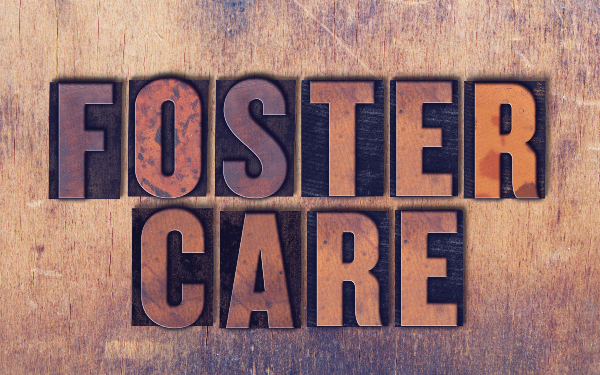
The number of mainstream foster care households in England has fallen by 10% over the past three years, despite a rising care population, official figures have shown.
As of 31 March 2024, there were 33,745 approved non-kinship foster households, down by 1,260 (3.6%) on the year before and by 3,580 (9.6%) since 2021, revealed the Ofsted data.
Though the number of family and friends carer households grew for a second consecutive year in 2023-24, from 8,400 to 8,865, they are approved to care for specific children only.
Also, the growth in their number has been far exceeded by the decline in the number of mainstream households, meaning total fostering capacity has fallen from 45,370 to 42,615 from 2021-24, a drop of 6.1% (2,755).
Falling numbers of fostering places
The fall in the number of mainstream fostering households translated into a drop in the number of approved fostering places in 2023-24, from 72,770 to 70,465. This figure has fallen year on year since 2020, when it stood at 78,830.
Meanwhile, the number of filled approved mainstream places, which was stable from 2021-23, fell in 2023-24, from 44,580 to 42,870.
This is despite the number of children in care in England having grown by 3,070, to 83,840, from 2021-23, a period during which the children’s home sector has grown significantly.
Sector charity the Fostering Network said the declining number of carers was the result of a lack of remuneration, inadequate support from their council or fostering agency and insufficient respect for their role.
In response, the Department for Education (DfE) pointed to increased investment since 2023 in foster care recruitment through the rollout of regional hubs to support applicants through the process, which will be extended to the whole country in 2025-26.
Councils disproportionately hit by fall in carer numbers
As in 2022-23, the fall in the number of mainstream fostering households in 2023-24 was driven by reductions in the numbers approved by local authorities, which fell by 975 (4.9%), from 19,835 to 18,860.
There was a smaller fall in the number approved by independent fostering agencies (IFAs), which dropped by 280 (1.8%), to 14,890. IFAs now account for 44% of mainstream fostering households – up from 41% in 2020 – and 48% of filled mainstream places, up from 43% in 2020.
However, while the number of IFA-approved households grew in 2019-20 and 2020-21, this figure has reduced in each of the last three years.
Recruitment and retention
There was a slight increase in the number of applications to foster in 2023-24, with 8,485 households doing so, up from 8,010 the previous year.
However, the number of newly approved mainstream households was flat year on year (4,055, compared with 4,080 in 2022-23) and below annual levels seen between 2019-20 and 2021-22.
The number of deregistrations was 4,820 in 2023-24, with 4,280 households leaving fostering altogether during the year, down from 4,570 in 2022-23.
Policy response to foster care shortages
Under its Stable Homes, Built on Love strategy, the previous Conservative government took action to bolster foster care recruitment and retention, including by:
- Increasing national minimum fostering allowances by 12.43% in 2023 and 6.88% in 2024.
- Investing £36m, from 2023-25, in 10 regional fostering recruitment hubs, covering 64% of local authorities. These are designed to provide a single point of contact for people interested in fostering and support them through the process from initial enquiry to application.
The majority of hubs were launched in summer 2024, after the timeframe of Ofsted’s figures, meaning their impact is yet to be seen in the data. Labour has continued with the regional hubs policy, allocating £15m in 2025-26 to roll them out to the rest of the country.
Recruitment hubs ‘will generate hundreds of new placements’
A Department for Education spokesperson said this would “generate hundreds of new foster placements and offer children a stable environment to grow up in”.
“Foster carers play a hugely important role in the wider children’s social care system and will be at the heart of our thinking as we re-focus the system to provide earlier support and greater stability for children,” the spokesperson added.
The Association of Directors of Children’s Services (ADCS) said it welcomed the extra investment but stressed that it was “imperative that local and central government continue to work together to ensure we have enough foster carers and that they have the resources, training, and support needed to thrive in their roles”.
Leaving IFAs out of recruitment hubs ‘a strategic error’
The Nationwide Association of Fostering Providers, which represents IFAs, meanwhile, raised concerns about the exclusion of agencies from recruitment hubs.
“Government has decided to roll out the recruitment and retention hubs across England,” said NAFP chief executive Harvey Gallagher.
“This is premature, given the short time most have been operational. But, in the light of falling fostering capacity, it’s understandable that government hope these hubs will provide a possible solution.
“The hubs have excluded IFAs – this is a strategic error. Local authorities and IFAs are two parts of the same system, as this dataset demonstrates. Government policy should reflect this.
“We need to rid ourselves of historical divides and pull together to provide the high quality integrated fostering provision which our children and young people deserve.”
Lack of remuneration and support causing carers to quit – charity
The Fostering Network said carers were leaving for three main reasons – inadequate remuneration, lack of support from their fostering service and insufficient respect for their role – and warned that “annual losses will continue unless urgent action on a much greater scale is taken”.
“Action needs to be taken to make fostering more sustainable – we urgently need a UK-wide fostering strategy that addresses the retention of foster carers as much as recruitment,” added chief executive Sarah Thomas.
“We are also calling for a national recruitment campaign that is underpinned by a more personal and child centered approach when a foster carer picks up the phone to enquire about fostering.”
Carers ‘are ignored and blamed’
The National Union of Professional Foster Carers, which represents about 8% of carers, said falling numbers were down to carers’ voices being “ignored” and them being “blamed whenever anything goes wrong”.
General secretary Robin Findlay said regional fostering recruitment hubs would not work when “current carers were leaving and advising prospective carers not to join”.
“Personal recommendation is the best way to recruit new carers but until the system is fixed and current carers treated fairly this will not happen,” he said.
Findlay said the union had put forward ideas to the DfE about changing the way allegations of harm or concerns about standards of care in relation to foster carers were handled.
He claimed that, currently, “fabrications take precedence over facts and evidence and the foster carers are often not invited to contribute to the fact finding until the matter has been self-investigated and decisions have already been made”.
Under the union’s proposed solution, providers and carers would both supply evidence to a legally-qualified external adjudicator, who would determine the outcome.
Allegation statistics
The number of abuse allegations made against foster carers in 2023-24 – 3,050 – was similar to levels seen in the previous two years, though above the numbers recorded in 2019-20 (2,495) and 2020-21 (2,600), showed the Ofsted figures.
Most of the allegations were made by foster children (1,880), with just over half concerning physical abuse (1,610) and almost a quarter (735) emotional abuse.
In about half of cases (1,595), the concern was resolved with no further action taken, while in 875 instances (28.7%), the concern remained and the issue was referred to the fostering panel. In the remainder (575), a period of continued monitoring was agreed.






 Bournemouth, Christchurch and Poole
Bournemouth, Christchurch and Poole  Hampshire County Council
Hampshire County Council  Oxfordshire County Council
Oxfordshire County Council  South Gloucestershire Council
South Gloucestershire Council  Wokingham Borough Council
Wokingham Borough Council  Webinar: building a practice framework with the influence of practitioner voice
Webinar: building a practice framework with the influence of practitioner voice  ‘They don’t have to retell their story’: building long-lasting relationships with children and young people
‘They don’t have to retell their story’: building long-lasting relationships with children and young people  Podcast: returning to social work after becoming a first-time parent
Podcast: returning to social work after becoming a first-time parent  How managers are inspiring social workers to progress in their careers
How managers are inspiring social workers to progress in their careers  Workforce Insights – showcasing a selection of the sector’s top recruiters
Workforce Insights – showcasing a selection of the sector’s top recruiters 

 Facebook
Facebook X
X LinkedIn
LinkedIn Instagram
Instagram
Comments are closed.